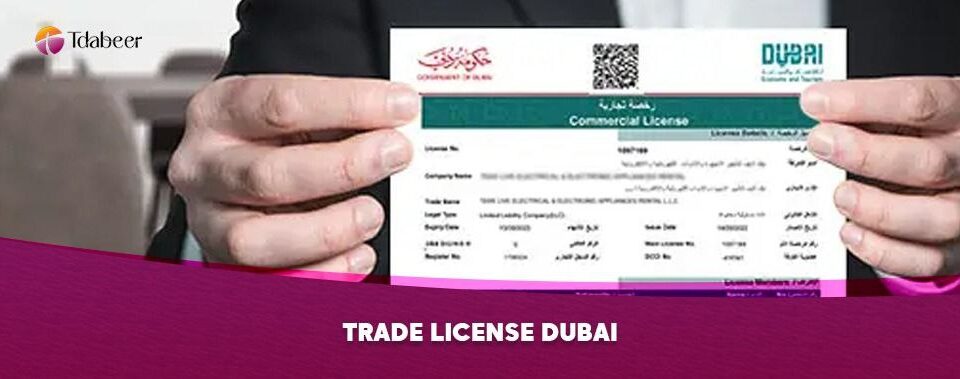
Dubai has solidified its position as one of the world’s top business hubs, attracting entrepreneurs and companies from all over the globe. Whether you want to open a retail shop, start a consultancy, or launch an industrial venture, one essential step is obtaining a trade license in Dubai. This license allows your business to operate legally within the UAE and is a critical requirement before any business activity can commence. In this guide, we’ll cover the different types of trade licenses, the application process, costs, and key considerations to help you get started.
What is a Trade License?
A trade license is an official document that grants businesses the legal authority to carry out specific commercial activities within Dubai. It is issued by the government, and every business—whether operating on the mainland, in a Free Zone, or offshore—needs one to function legally. Without a trade license, your company can face penalties, fines, and even closure.
Types of Trade Licenses in Dubai
Dubai offers various types of trade licenses based on the nature of the business activities. Here’s a breakdown of the main licenses:
Commercial Trade License
A Commercial License is issued to companies that are involved in trading activities. This can include general trading, import-export businesses, and specific product trading.
Professional Trade License
The Professional License is for service-based businesses. Whether you’re a consultant, freelance professional, or IT service provider, this license is suited for offering specialized professional services.
Industrial Trade License
An Industrial License is necessary for businesses involved in manufacturing or industrial operations. This includes activities like production, assembly, and packaging.
Tourism Trade License
Given Dubai’s booming tourism industry, the Tourism License is essential for businesses in travel, hospitality, and tourism services, such as travel agencies, hotels, and tour operators.
Who Needs a Trade License in Dubai?
Any individual or company looking to conduct business within Dubai, whether it’s a small startup or a large multinational corporation, must secure a trade license. Without one, businesses cannot legally operate, sign contracts, or invoice clients. This applies to businesses across all sectors, including retail, services, manufacturing, and more.
Consequences of Operating Without a License
Operating without a trade license is considered illegal in Dubai and can lead to heavy fines, penalties, or even forced business closure. It’s crucial to ensure you have the proper trade license before conducting any business activities.
Mainland vs. Free Zone Trade Licenses
When setting up a business in Dubai, you’ll need to choose between a mainland or Free Zone trade license, depending on your business needs.
Mainland Trade License Overview
A mainland trade license allows businesses to operate across Dubai and the UAE. The Department of Economic Development (DED) is the governing body responsible for issuing these licenses.
Free Zone Trade License Overview
A Free Zone trade license allows businesses to operate within a designated Free Zone. Free Zones offer 100% foreign ownership and tax exemptions, making them attractive to international investors. However, businesses with a Free Zone license are restricted from trading directly in the UAE market without a local agent.
Steps to Obtain a Trade License in Dubai
Step 1: Define Business Activity
The type of business activity you wish to conduct will determine the license you need. Dubai has a wide range of permitted activities, from retail to consulting to manufacturing.
Step 2: Choose the Jurisdiction
Decide whether you want your business to be located on the mainland, in a Free Zone, or offshore. Each jurisdiction has its own advantages and limitations.
Step 3: Register Your Trade Name
You must select and register a unique trade name for your business. The trade name should comply with Dubai’s naming conventions, avoiding names that reference religion or political organizations.
Step 4: Submit Required Documents
Prepare and submit necessary documentation, such as passport copies, visa copies, and a business plan. For mainland businesses, you’ll also need a Memorandum of Association (MOA) signed by a local sponsor.
Step 5: Obtain Approvals and License Issuance
After submitting the documents, your application will go through an approval process. Once approved, you’ll receive your trade license and can officially begin operating your business.
Cost of Obtaining a Trade License in Dubai
The cost of obtaining a trade license in Dubai depends on several factors, including the business type, jurisdiction, and additional services required. Here’s a general cost breakdown:
- Mainland Trade License Costs: AED 10,000 to AED 30,000 per year, depending on the business activity and scale.
- Free Zone Trade License Costs: AED 15,000 to AED 50,000 annually, depending on the Free Zone and services offered (such as office space).
- Additional Costs: These can include visa fees, office rental costs, and sponsor fees (for mainland businesses).
Documents Required for a Trade License Application
- Passport Copies: For all shareholders and business partners.
- Memorandum of Association (MOA): Required for mainland businesses involving a local sponsor.
- Trade Name Registration Certificate: Proof that your trade name has been approved.
- Business Plan: A detailed description of your business activities and objectives.
Renewal of Trade License
A trade license in Dubai is valid for one year and must be renewed annually. Failure to renew on time can result in penalties or the suspension of business operations. The renewal process typically involves resubmitting updated documents, renewing visas, and paying the required fees.
Benefits of Having a Trade License in Dubai
Holding a valid trade license in Dubai offers several advantages:
- Legal Business Operations: You can legally conduct business and enter contracts.
- Tax Exemptions: Many businesses benefit from Dubai’s tax-free environment, especially in Free Zones.
- Access to Markets: With a trade license, you can tap into both local and international markets.
Free Zone Trade License Process
Dubai is home to several Free Zones, each catering to specific industries. Some of the most popular Free Zones include:
- Jebel Ali Free Zone (logistics and manufacturing)
- Dubai Silicon Oasis (tech and IT)
- Dubai Media City (media and communications)
Each Free Zone offers specific incentives such as full foreign ownership, no import/export duties, and the ability to repatriate 100% of your profits.





